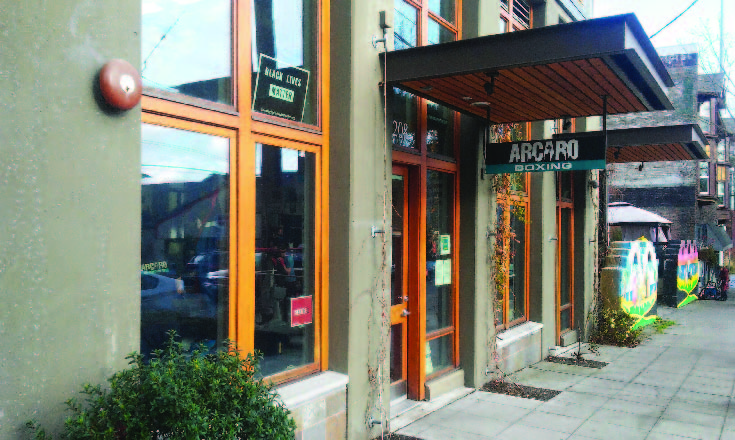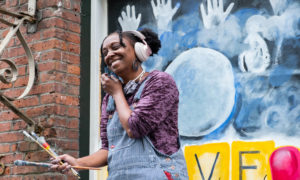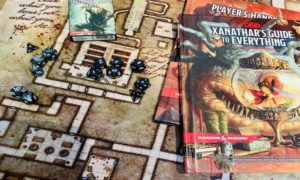When I watched my first UFC match on TV, I honestly had no idea what was going on. I can’t remember who was in the Octagon, but I know it was at least two years before Connor McGregor would become a global household name. I had just started boxing, so when the fighters were exchanging standing blows, that was a language I could understand. When the fight went to the ground, though, and the fighters started wrestling and grappling, I was completely lost. “Why are they just lying there?” Whatever it was they were doing, it was boring. I wanted them to stand up and get back to kick-boxing. Turns out they were speaking a language that I had no knowledge of whatsoever.
I started boxing as a means of self-exploration in a very down-and-out time of my life. I was drinking a lot, had gone through a nasty break-up, and was working a job that I hated. Without a whole lot of self-affirmation happening, I needed some way to say “I can hold my own.”
Six years later, I still train in martial arts religiously. I train at least three days a week, and I think about it every day, including a long-term study of Brazilian Jiu-Jitsu (that ground-grappling thing they do in UFC that I was pretty sure I wanted nothing to do with). How did this come to be? What was it about martial arts that I latched and held onto throughout the many rollercoaster rides that life offers?
I was listening to NPR when I heard a quote that grabbed my attention: “researchers analyzed Centers for Disease Control and Prevention survey data from 1.2 million adults and found — across age, gender, education status and income — people who exercised reported fewer days of bad mental health than those who didn’t.” I restarted the story and began listening again with heightened attention.
The story went on to elaborate about the many ways that participation in team sports activities can help alleviate symptoms of depression experienced by adults, complete with quotes from experts in sports and mental health fields. “We are animals. We are meant to move and if we don’t, a lot of systems slow down, including our mood and cognition,” says Dr. Antonia Baum, a psychiatrist and the past President of the International Society for Sports Psychiatry.
When I started training in martial arts, I stuck with it long enough that I began to build friendships with people at the gyms I trained at. People would ask why I didn’t come to class the day before, or even just how my weekend went, and we’d help each other perfect our form and encourage each other to work as hard as we could. As someone who was sitting in the depths of depression, these minor offerings by total strangers acted as multiple lifelines, pulling me out of a deep well that I didn’t even know I had fallen into.
For teenagers and adults alike, depression is rampant. But for students at Seattle Central Community College, the options for exploring your own therapy are many. Martial arts isn’t the only resource on or near campus for those of us dealing with depression, anxiety, or any of the other things that may fall into the category of mental health and wellness; the campus Counseling Center is located on the third floor at room BE3166.
In the MAC there are multiple free group sports activities, and all you need is a student ID card and to be enrolled in 5 credits or more per quarter. Every Monday an Escrima — one of the many styles of Filipino martial arts — study group meets up from 3:00pm-4:00pm, and on Tuesdays & Thursdays cardio boxing happens from 2:30-3:30pm.
If you want to train off campus, Arcaro Boxing offers an incredibly welcoming environment for participants of all levels down at 1208 E. Jefferson St. They also offer a monthly no-contact boxing workshop for trans and non-binary folx for $10. And, if you want to do that ground-grappling thing that sometimes happens in UFC, just down the hill from school at 222 Minor Ave N., Praxis Brazilian Jiu-Jitsu has a great intro class Tuesdays & Thursdays from 5:30-6:30pm, as well as Fridays from 7:00-8:00pm.






Comments are closed.